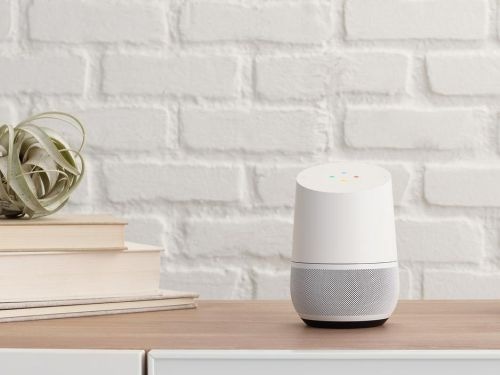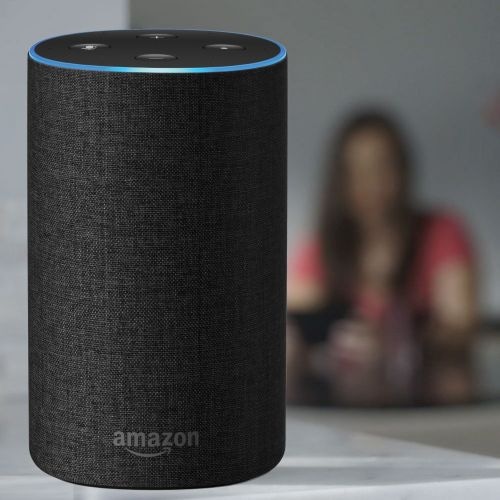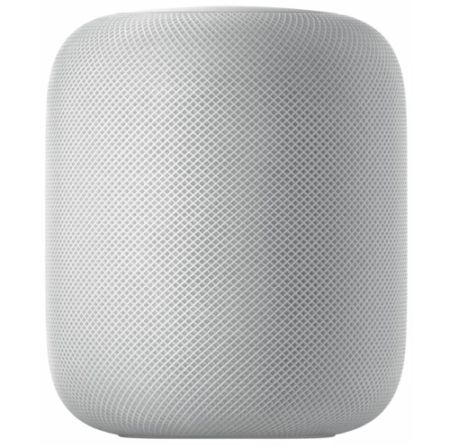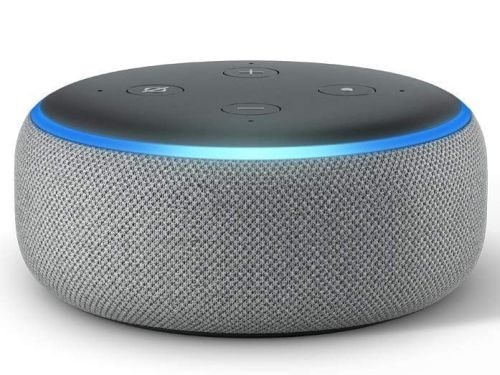Which Voice Assist Speaker is Right for You?
Posted on December 30, 2018 By Guest The ability to coordinate and control smart home devices has taken an enormous leap into the future with the introduction of voice control. Smartphone "digital assistants" have evolved from typing to speaking, making it easier than ever for them to perform tasks or find information. The impact of voice-assist technology is evident in homes across America where smart home control hubs such as Google Home, Amazon Echo or Apple HomePod can be used to control a homes electronic devices and utilities. In fact, as of January 2018, one in six Americans owns a smart speaker and many consider them the future of home automation.* With voice assist technology, smart home speakers and displays become a home's command center offering convenience, security and savings, all with the sound of your voice.
The ability to coordinate and control smart home devices has taken an enormous leap into the future with the introduction of voice control. Smartphone "digital assistants" have evolved from typing to speaking, making it easier than ever for them to perform tasks or find information. The impact of voice-assist technology is evident in homes across America where smart home control hubs such as Google Home, Amazon Echo or Apple HomePod can be used to control a homes electronic devices and utilities. In fact, as of January 2018, one in six Americans owns a smart speaker and many consider them the future of home automation.* With voice assist technology, smart home speakers and displays become a home's command center offering convenience, security and savings, all with the sound of your voice.
Smart Speakers: A Perfect Gift for Yourself or Others
In 2017, more than 10% of voice-assist speakers were purchased between November and December. To help you choose a smart speaker, we collaborated with Newsday's Brand360 studio to offer the following overview of today's smart speaker marketplace and the products that work with each brand.
With a Google Home hub, you can ask the cloud-based Google Assistant to play your favorite music, find a dinner recipe, turn on the patio lights, or read to you from an audio book. Like other voice-control systems, Google Home has lined up an impressive number of smart product partners that work with it, including Nest (smart thermostats and security lighting), Chromecast (televisions and video games), August (door locks), Rachio (lawn and garden sprinkler systems), and much more. Google Home has also expanded into a family of products such as the Google Home Mini that extend its usefulness throughout the home.
Google Home Benefits
- Affordable entry to Smart Home voice control
- Compatible with many third-party smart devices and brands
- Built-in Google Cast for streaming high-fidelity audio through third-party speakers
- Syncs to Google Chromecast devices including TVs
- Google Assistant voice-assist extensions include inexpensive compact Google Mini and high-fidelity Google Max speakers
- Google Match lets users control calendars, flight data, online payments and more
- Customizable base
 Amazon
Amazon
Another major player in the smart home voice-assist market is Amazon's Echo, a Wi-Fi streaming audio speaker with built-in control hub that employs a digital assistant named Alexa to oversee its own partner network of dozens of smart items with various abilities. Like Google Home, Echo has expanded into a family of smart products, each with unique features. This includes the cornerstone Echo Plus model with its voice control hub; the Echo Show, a tabletop video screen that displays input from camera-equipped smart devices; the Echo Spot, a modern bedside alarm clock with video calling and display functions; and the Echo Dot, an inexpensive unit that can be placed in rooms around a home to communicate with the central Echo Plus hub. Echo's smart home product partners to date include Philips Hue (lighting), Yale (door locks), Samsung SmartThings (remote control devices), and Belkin WeMo (electrical switches, plugs and more), along with an ever-expanding number of providers.
Amazon Echo Plus Benefits
- Affordable entry to Smart Home voice control
- Compatible with many third-party smart devices and brands
- Syncs to Amazon Fire TV, Fire TV Stick and Fire TV Edition
- More compact design with new interchangeable fabric and wood finishes
- Alexa voice-assist extensions include Echo Show videoscreen, Echo Spot clock radio and inexpensive compact Echo Dot devices
- Alexa controls now built into several third-party devices
 Apple
Apple
The third major smart home voice-command player is Apple, which introduced its HomePod audio speaker and control hub last year. That Apple waited so long before committing itself to this fast-growing market is surprising, especially because its Siri digital voice assistant led most other manufacturers in early smartphone voice recognition. Despite its late start, Apple is catching up fast with its HomeKit partner network, which includes several of the same smart home products as Amazon Echo and Google Home, as well as manufacturers like Ecobee (learning thermostats), Velux (windows and skylights), Kwikset (door locks), D-Link (control hubs and devices), and others.
HomePod Pros
- Compatible across all other Apple devices including Apple CarPlay
- Highest-rated sound quality among voice-assist speakers
- Intuitive set-up
- Siri voice accuracy high
- Minimal design
Talk to the Experts About Compatibility and Connectivity
When choosing from these smart home voice-assist control devices, it's important to know that many of the product partnerships are not limited to just one manufacturer's hub, and may be compatible with competing hubs as well. However, not all of them seamlessly integrate with all hubs, so be sure to research online reviews and consult with the Smart Home experts at P.C. Richard & Son to find out what works.
Other Smart Speaker Options
Some products, like Sonos speakers and Ecobee home thermostats (which incorporate the Alexa control hub), also can be operated through Google Assistant and Apple Siri devices. A number of manufacturers now offer voice-assist speakers that include smart-product command hubs, along with other stand-alone speakers that do little more than wirelessly stream audio through a home's Wi-Fi network. That is not to discount the value of those products, as some offer superior sound quality and other innovative features, with or without smart home command. Whichever voice-assist audio speaker you prefer, you're free to choose among an array of products to suit your needs. But when it comes to choosing a voice-assist command system for your smart home, it's really a three-way race between Amazon Echo, Google Home and Apple HomePod.
Secondary Speaker Hubs
One work-around to this is to pair your voice assist speaker with a secondary hub like Samsung SmartThings, Nest Connect or Philips Hue Bridge that can expand or enhance the number of devices Alexa, Google Assistant or Siri can link to. There are even products such as August Locks, which offers additional security, that need their own proprietary hubs in order to operate within one of the parent voice control systems.
 Smart Speaker, Smart Questions
Smart Speaker, Smart Questions
Any comparison among voice control products should start with a few basic questions:
- Are the control systems easy to understand and use?
- Does the system have a sufficient number and range of products, and will there likely be more added in the future?
- Are those compatible smart home products easy to link and operate?
- Do the products designed to work with the system fit your lifestyle and pocketbook?
The way partner products are able to work with the smart home voice-command market leaders is not unlike the way Microsoft and Apple computers once ran on parallel development tracks that excluded one another. Over time, these competitive barriers relaxed and most products became compatible with both operating systems. When choosing a voice-assist smart home control system, you'll have to decide which system you are most comfortable with, based in part on the ancillary products that are compatible with them now, or expect to be in the future. *Source: NPR, Edison Research January 2018